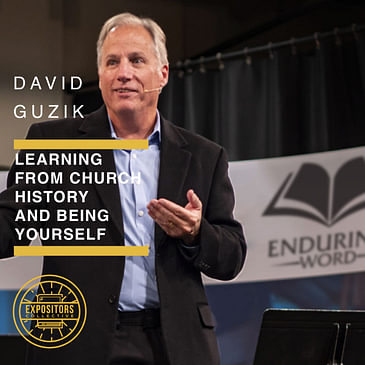David Guzik, the author of the Enduring Word commentary and YouTube Channel, engages in an insightful and friendly dialogue with Mike Neglia. They explore the intricate process of utilizing commentaries effectively in sermon preparation, emphasizing the importance of discernment in approach. Guzik passionately underscores the necessity of internalizing God's truth within one's heart before sharing it from the pulpit.
Moreover, the conversation delves into the challenges of combating a people-pleasing tendency, a common hurdle for preachers. Guzik candidly shares his insights on overcoming this obstacle, advocating for a steadfast commitment to delivering God's message authentically and without compromise. Also the significance of meticulously organized sermon outlines and effective delivery techniques is discussed. Guzik emphasizes the importance of structuring sermons coherently to enhance clarity and resonance with the audience. Additionally, the journey of discovering one's unique voice in preaching is illuminated as a profound and ongoing process, requiring patience, introspection, and continual growth.
In essence, this enlightening conversation with David Guzik offers invaluable guidance and wisdom for preachers seeking to enrich their sermon preparation, refine their delivery, and remain true to their authentic voice in conveying God's truth.
“For Ezra had set his heart to study the Law of the Lord, and to do it and to teach his statutes and rules in Israel.” (Ezra 7:10, ESV)
Church History Related Episodes of Expositors Collective:
Armando Garcia - Learning from Church History https://cgnmedia.org/podcast/expositors-collective/episode/learning-from-church-history-with-armando-garcia
Ian Clary - Learning from the Puritans https://cgnmedia.org/podcast/expositors-collective/episode/learning-from-the-puritans-with-dr-ian-clary
Ian Clary + Shane Angland : Learning from Augustine https://cgnmedia.org/podcast/expositors-collective/episode/learning-from-pastor-augustine-with-shane-angland-ian-clary
Gerald Bray on John Chrysostom: https://cgnmedia.org/podcast/expositors-collective/episode/pastoral-preaching-brevity-and-john-chrysostom-gerald-bray
Resources Mentioned:
John Koessler episode: https://cgnmedia.org/podcast/expositors-collective/episode/preaching-that-is-prayerful-and-priestly-john-koessler
Chris Brown episode (Every passage has a story either in it or behind it) https://cgnmedia.org/podcast/expositors-collective/episode/every-passage-has-a-story-either-in-it-or-behind-it-with-chris-brown
Christ Brown interview (You have permission to be yourself) https://cgnmedia.org/podcast/expositors-collective/episode/you-have-permission-to-be-yourself-with-chris-brown
Jared Moore (the guy who told young Mike that he was trying to impress the congregation) https://twitter.com/jaredhmoore
Ancient Christian Commentary series: https://www.ivpress.com/ancient-christian-commentary-on-scripture
Connect:
For information about our upcoming training events visit ExpositorsCollective.com
The Expositors Collective podcast is part of the CGNMedia, Working together to proclaim the Gospel, make disciples, and plant churches. For more content like this, visit https://cgnmedia.org/
Join our private Facebook group to continue the conversation: https://www.facebook.com/groups/ExpositorsCollective
Click here to support Expositors Collective






